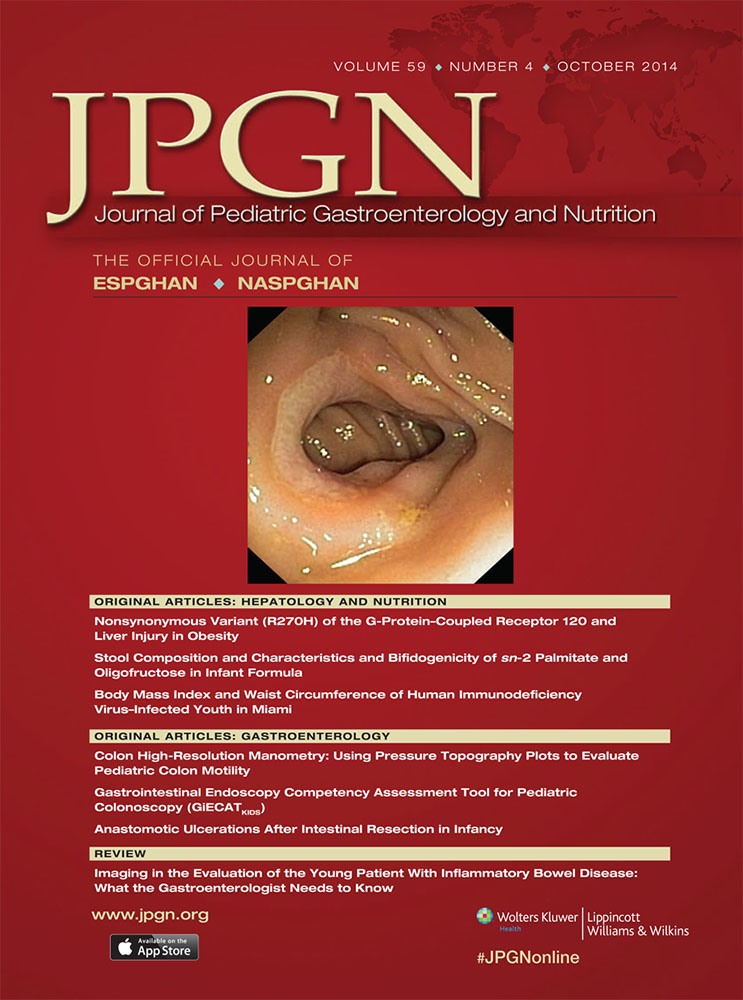Focus Groups for Developing a Peer Mentoring Program to Improve Self-Management in Pediatric Inflammatory Bowel Disease
Supplemental digital content is available for this article. Direct URL citations appear in the printed text, and links to the digital files are provided in the HTML text of this article on the journal's Web site (www.jpgn.org).
The present research was supported by a Diversity Supplement for grant R01HD058317.
The authors report no conflicts of interest.
ABSTRACT
Objectives:
Inflammatory bowel disease (IBD) presents challenges for self-management in many areas. A peer mentoring program may offer advantages over other forms of self-management interventions because youth may be more receptive to learning self-management skills from a peer than from a parent or professional. The purpose of the present study was to identify themes from focus groups to inform development of a peer mentoring program for improving self-management in pediatric IBD.
Methods:
Focus groups were conducted for youth ages 12 to 17, stratified by age (3 groups; n = 14), young adults ages 18 to 20 (1 group; n = 5), and parents of the youth (3 groups; n = 17). Broad questions covered program goals, general program characteristics, mentor/mentee characteristics, and family involvement, and transcriptions were analyzed via directed content analysis, with the a priori codes specified as the broad questions above.
Results:
Participants identified the primary goals of a program as support, role model, information/education, and fun. They described a program that would include a year-long, 1-on-1 mentor relationship with a peer who has had IBD for at least a year, educational group activities, fun activities that are not focused on IBD, expectations for in-person contact 1 to 2 times per month, and mentor-to-mentor and parent support.
Conclusions:
Many of the suggestions from the focus groups correspond with research findings associated with successful mentoring programs. Using participants' suggestions and empirically based best practices for mentoring may result in an effective peer mentoring program for improving self-management in youth with IBD.




